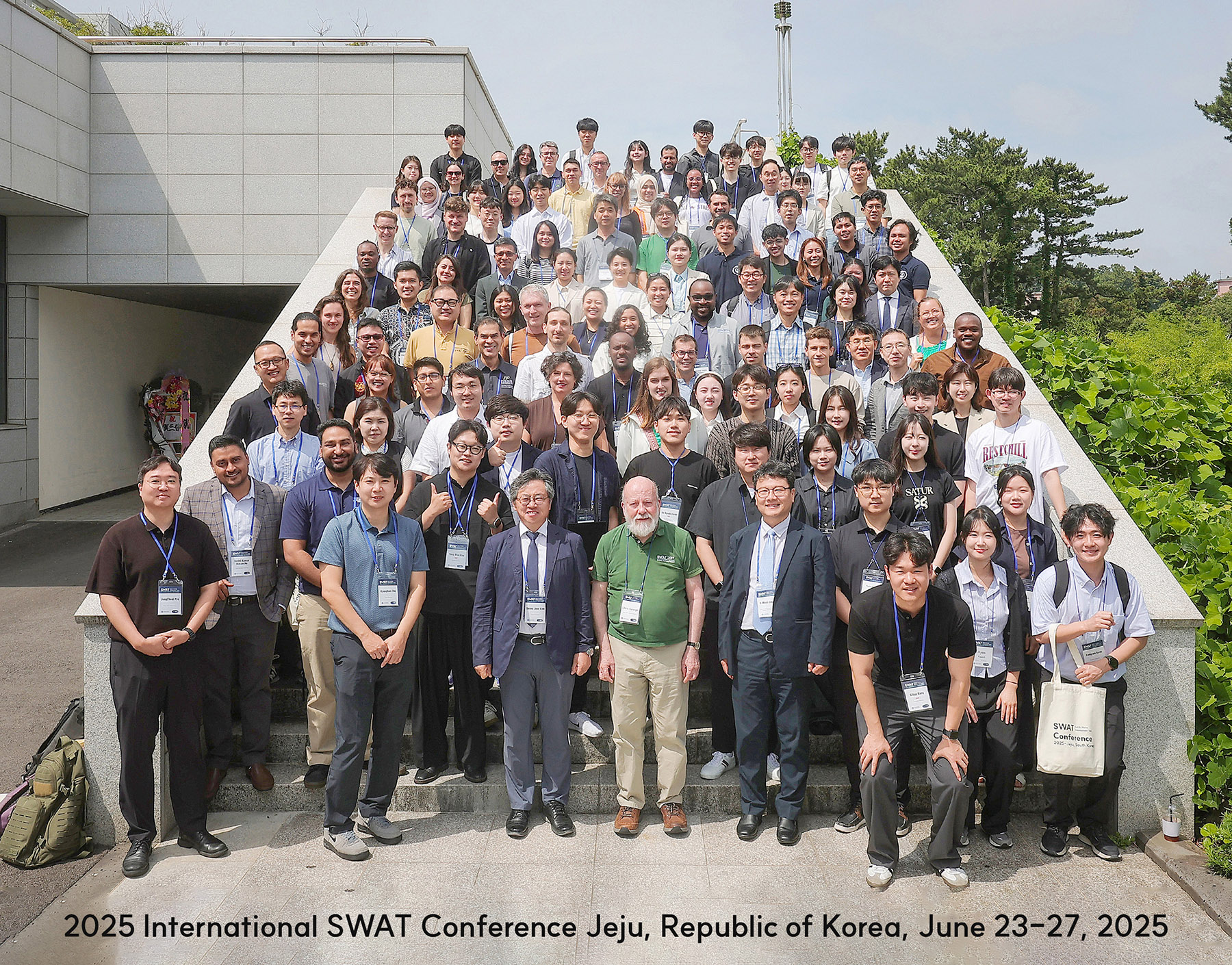June 2025 - Jeju, South Korea
An International SWAT Conference & Workshops will be held 23-27 June, 2025 at Cheju Halla University, a private university located in Jeju Province, Republic of Korea.
The 2025 International SWAT Conference was attended by over 180 participants across 30 countries and 6 continents. A special thank you to Konkuk University, Korea University, and the Korea Institute of Civil Engineering and Building Technology (KICT), along with Seong Joon Kim, Il-Moon Chung, Kyung Hwa Cho, and the rest of the local organizing committee in South Korea for their countless hours and efforts to host the SWAT Community.
Certificates of participation and presentation were emailed on 1 July. Please check your spam folders for email from eco.web@tamu.edu and contact us if you still cannot locate it.

Local Organizing Committee
- Seong Joon Kim (Conference Chair), Konkuk University
- Il-Moon Chung (Conference Co-Chair), Korea Institute of Civil Engineering and Building Technology
- Kyung Hwa Cho (Conference Secretary), Korea University
- Sangchul Lee, Korea University
- Jong Ahn Chun, APCC
- Won-Ho Nam, Hankyoung National University
- Younghyun Cho, K-water
- Jeongwoo Lee, Korea Institute of Civil Engineering and Building Technology
- Chul-Gyum Kim, Korea Institute of Civil Engineering and Building Technology
- Gi-Won Koh, The Gotjawal Trust of Jeju
- Soo Hyoung Moon, Jeju Province Development Co.
- Mayzonee Ligaray, Institute of Environmental Science and Meteorology, College of Science, University of the Philippines Diliman
- Min Ji Park, National Institute of Environmental Research
- Jong Yoon Park, Korea Environment Institute
- Ji Wan Lee, Han River Flood Control Office
- Dae Ryong Park, Konkuk University
- Jung-Hun Song, Chungnam National University
- Yong Gwan Lee, Konkuk University
- Sang Soo Baek, Youngnam Unversity
- Jongcheol Pyo, Pusan National University
- Sanghun Park, Pukyung National University
- Jeong Eun Lee, Korea Institute of Civil Engineering and Building Technology
- Soyoung Woo -, Korea Institute of Civil Engineering and Building Technology
- Wonjin Kim, Korea Institute of Civil Engineering and Building Technology
- Soon-kun Choi, National Institute of Agricultural Sciences
- Won Bae Park, Jeju Research Institute
- Kyoung Jae Lim, Department of Regional Infrastructure Engineering, Kangwon National University
International Organizing Committee
- Raghavan Srinivasan, Texas A&M AgriLife Research, USA
- Jeff Arnold, Texas A&M AgriLife Research, USA
- Arun Bawa, Texas A&M AgriLife Research, USA
- Jaehak Jeong, Texas A&M AgriLife Research, USA
- Jaclyn Tech, Texas A&M AgriLife Research, USA
Technical Committee
- Jaclyn Tech, Texas A&M AgriLife Research, USA
- Celray James CHAWANDA, Texas A&M AgriLife Research, USA
- Arun Bawa, Texas A&M AgriLife Research, USA







